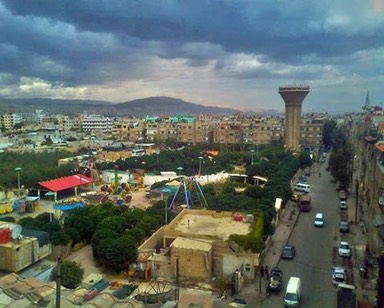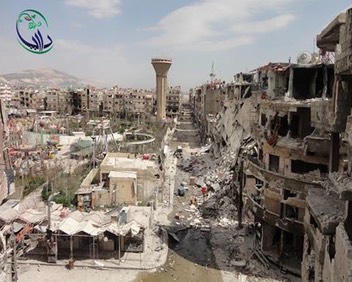Geopolitics
A different species?
I suppose I have an average number of friends and acquaintances, and one thing I am certain of is that, however individual they all are, they have many characteristics in common.
To the extent allowed by their employer, they enjoy their work, seeing it as something more than merely a way to earn their income. They also have a common desire to spend time with their loved ones and friends and even neighbours. They want to help their children to develop positively and hope that the children will have a life at least as good as their own, preferably better, with hopefully fewer worries. They enjoy their holidays, and many of them wish to use free time to visit new places, perhaps a day trip to a nearby town or village, or, for a longer period, a foreign country.
Of course there are exceptions. However much one might wish it otherwise, some people have a repetitious job, not especially intellectually stimulating. Their time for family and friends may be limited by the need to work longer hours, or they may not be as social as the majority, and prefer, at least for this phase of their lives, a period of aloneness. They may not yet have children, and may belong to that increasing number which is happy to help nephews and nieces, neighbours’ children and others, and forego the experience of parenthood at first hand. They may prefer to spend their vacations at home, catching up on books and music which they have not had time for during daily life.
But whichever group one’s friends belong to, they also have a common requirement of their environment: they expect it to be managed in such a way as to facilitate their goals. Many of them consider that elections are intended to select the best team to organise this facilitation for the next period. They are hiring managers for the social environment. Their idea of a government is that it is there to level the playing field, so that financially strong commercial enterprises do not have an overhand in negotiations with individuals. Government is expected to be their servant rather than their master.
I have travelled perhaps more than most in my work and my life. I have spent extended periods in the UK, Iceland, the Middle East and Africa, and now Sweden, where I have lived for a longer period than anywhere else. And I have seen that it is the same everywhere. The English, Icelanders, Omanis and Arabs, Nigerians and residents of Benin, and Swedes, or at least the ones I have met, share these common characteristics, and for the most part respect and understand the needs of other people, both in their own countries and outside, for these common goals. None of them wish to exchange
this: for this:


or this: for this:


or this: for this:


But there is a small group of people who have no compunction about turning the majority of people’s lives from the civilized state of the ‘before’ pictures above to the living hell of the ‘after’ pictures. And the phrase ‘living hell’ presupposes, of course, that the people involved do continue to live. As a result of the efforts of this small group of people, millions of civilized people are forced to move, from their pleasant world turned to hell, into a world of total uncertainty, where tonight’s shelter, tomorrow’s meal are uncertainties; where even the chance of a drink of clean water and a little privacy to defecate are denied.
I believe that the people of this small group are damaged, some by having been exposed to such brutality as we see in these pictures without the ability to object, others because they lack some feature of what it is to be human, whether it is caused by a badly mutated gene or a faulty synapse in their brain. They are so damaged that they can hardly be thought to belong to the same species as I and you and the people they are attacking. They should be branded in some way, like Cain, so that civilized people know them for what they are, and can take action for their own defence.
Unfortunately for us, many of our most powerful politicians, and commercial and military leaders fall into this group, and the question is what are we to do with them?
There is a story about the philosopher and polymath, Jacob Bronowski, who was involved in some way with the plans for post-second world war discussions on the future of nuclear weapons. When the question came up of where the discussions should be held, he suggested Hiroshima or Nagasaki.
“Oh, no, that would never do,” he was told. “The delegates would feel so uncomfortable in those places.”
“That’s exactly my point,” he replied, “They should not feel comfortable.” and I take his point as my own. Let us send these people who kill at a distance, by sending supplies, arms or even soldiers to the aid of the small groups which attack innocent people, let us strip them of their command and send them to the places they have created. Let us dump them down there, without all their court of fetchers, carriers and yes-men, so that they themselves experience the hell of the people they have attacked by proxy. Let them experience the worry of tonight’s shelter, tomorrow’s food, of no water to drink and no quiet place to defecate.
One thing we absolutely must not do is to re-elect them.